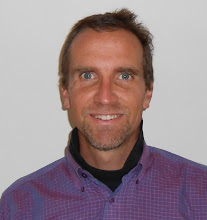Chicken and Maggots 1 Sept 2009
Welcome to Albania. The friendliness of the people is probably best demonstrated by the owner of the chicken shack. One day, Oskar screamed out, "I have to pee!" The shack was the closest, and I hoped he would recognize me from the one time I had been there. We were able to sneak in because the restrooms are before you get the main part of the restaurant. We breezed in, did our business and were popping out when he (I don't know his name yet, but will soon. I don't even know a popular local name, yet so I can't make it up. Unlike Kazakhstan, not everyone is named one of five first names—Volodya, Sergai, etc.) showed up at the door. Rather than ask us why we were snooping around, or what we would like to order, asked me to confirm that I have two sons, and gave us two bottles of apple juice, sweating in the early evening humidity.
We enjoyed a family meal at the shack a couple days later—two Greek salads, two orders of French Fries, two apple juices, 1.5 liter bottle of water, one Sprite, a half liter of beer, and a whole chicken for about $15. We even took home some salad. A similar meal in Almaty would be at least twice as much. This restaurant is literally 10 steps from the gate to the school.
This week, I've been trying to think where to get some raw meat for a science experiment. On my way back from Mr. Paper and Pencil and a purchase of bananas, I thought I would pop in and try to make myself understood.
"Mirëmbrëma!" I said as I walked in putting my hand up, "I don't want to eat anything, I just want some raw meat. Raw meat. Yeah. RAAAW meat, for a science experiment." I don't why I thought that if I stressed the most troublesome word in the phrase, somehow he might understand.
I'd like to be able to tell some story about the ridiculous pantomimes of a foreigner without a dictionary, but Mr. Chicken understand perfectly as he said, "I have sheep." I nodded enthusiastically and he stepped over to his refrigerator. I selected a couple ribs and he said, "I also have your back,” as he touched my spine. He wouldn't take any money for it, either. Maura said the other day she was in there with the director looking for one of our employees and he gave her whole entourage ice creams. It's lovely to be in a place where people like you, and have some sense of hospitality in a shop.
The trash around is disgusting, and more often than in Almaty, I've seen people drop an empty cigarette package or a sandwich paper. Here, when I've picked it up to give back to them, they have always smiled broadly, taken the paper back and usually their friends have seemed to bawl them out as they walk away laughing.
What kind of science experiment? My first unit in 6 year old science involves living things, how they change and develop. I want to recreate the 1668 investigation by Francesco Redi. His work is considered one of the first true scientific experiments. Before this smart Italian, everyone accepted that living things could instinctively appear on non-living things. For instance, frogs would jump out of the fertile soil left behind after the yearly floods of Egypt; or sewage and garbage thrown out of the window in cities naturally produced tons of rats. Mr. Redi wanted to show that if he used a net to cover a jar with a piece of meat, it would NOT produce maggots; but if a similar jar had no covering, maggots would invade. So I'm going to do something comparable. I just have to ask my Albanian colleague to convince the super-efficient cleaning staff not to throw my experiment in the trash.


































